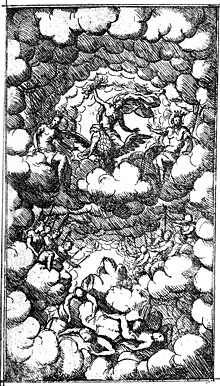The year 1676 in music involved some significant events.
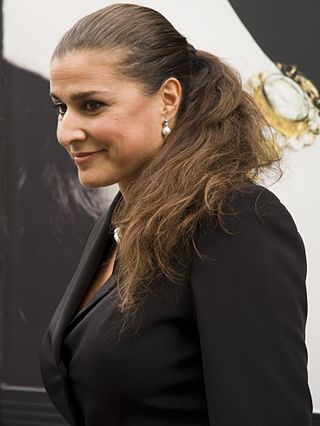
Cecilia BartoliOMRI is an Italian coloratura mezzo-soprano opera singer and recitalist. She is best known for her interpretations of the music of Bellini, Handel, Mozart, Rossini and Vivaldi, as well as for her performances of lesser-known music from the Baroque and Classical period. She is known for singing both soprano and mezzo roles.
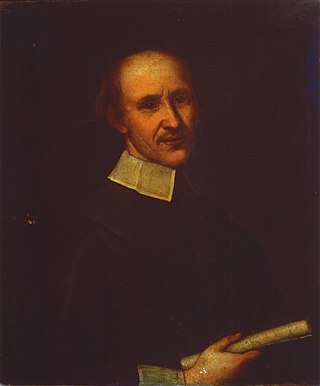
Giovanni Legrenzi was an Italian composer of opera, vocal and instrumental music, and organist, of the Baroque era. He was one of the most prominent composers in Venice in the late 17th century, and extremely influential in the development of late Baroque idioms across northern Italy.
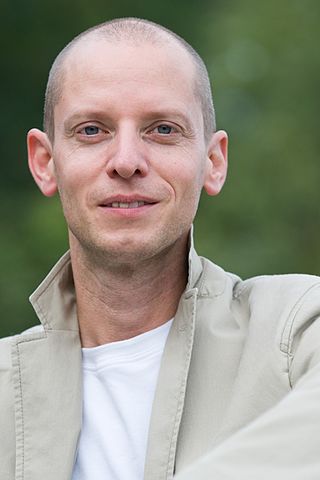
Bernhard Landauer is an Austrian countertenor in opera and concert, who is active internationally in both historically informed performance and contemporary music.
Hilary Summers is a Welsh lyric contralto. She was trained at Reading University, the Royal Academy of Music, and the National Opera Studio in London. She has performed on soundtracks such as The Lord of the Rings: The Two Towers, The Libertine, and The Hitchhiker's Guide to the Galaxy. She has created roles for composers Péter Eötvös and Elliott Carter, and is known to have a close working relationship with Michael Nyman. She created the leading role of the Art Banker in Nyman's opera Facing Goya. In 2000 she performed the role of Mars in the first modern revival of Giovanni Legrenzi's La divisione del mondo at the Schwetzingen Festival. Her discography includes, for Chandos, Handel's Partenope and Semele. She sang the Sorceress in Dido and Aeneas at the Opéra-Comique.

Carlo Francesco Pollarolo was an Italian composer, organist, and music director. Known chiefly for his operas, he wrote a total of 85 of them as well as 13 oratorios. His compositional style was initially indebted to the opera tradition of Giovanni Legrenzi and Carlo Pallavicino, but he moved beyond this style with innovations to the compositional structure of the aria characterized by expanded forms and orchestral elaborations. His early work used three part strings in the Legrenzi and Pallacino tradition of orchestration, but his mid and later works had developed into a richer orchestration of five strings parts and expanded instrumentation of brass and woodwinds. He was the first Venetian opera composer and one of the earliest Italian composers to use the oboe in his opera orchestrations.
Carlo Pallavicino was an Italian composer.

Simone Kermes is a German coloratura soprano, especially known for her virtuoso voice, suited to the opera seria genre of the Baroque and early Classical period.

The Teatro Santi Giovanni e Paolo was a theatre and opera house in Venice located on the Calle della Testa, and takes its name from the nearby Basilica of Santi Giovanni e Paolo, Venice. Built by the Grimani family in 1638, in its heyday it was considered the most beautiful and comfortable theatre in the city. The theatre played an important role in the development of opera and saw the premieres of several works by Francesco Cavalli, as well as Monteverdi's Il ritorno d'Ulisse in patria and L'incoronazione di Poppea.
James Taylor is an American tenor, known for singing the Evangelist in works of Johann Sebastian Bach.
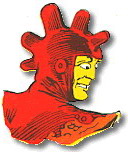
Rebo is an Italian comics character, created for the story Saturno contro la Terra by Cesare Zavattini (plot), Federico Pedrocchi (script) and Giovanni Scolari (art) in 1936. He is the dictator of Saturn and wants to conquer Earth, but his plans are foiled by Dr. Marcus and Ciro.
Giulio Cesare Corradi was an Italian opera librettist.
Delphine Galou is a French contralto. She was the "Discovery of the Year" of the French Association for the Promotion of Young Artists in 2004. Galou's outstanding vocal technique combined with noble bearing allow her performances of the most virtuoso roles of the baroque repertoire.
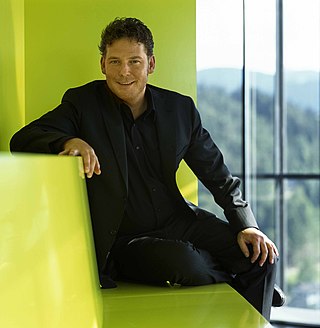
Matthias Rexroth is a German countertenor and voice teacher. Winning 1st prizes at the Francisco-Viñas in Barcelona and the 'Belvedere Competition' in Vienna in 2000, preceded an extensive international performing and teaching career.
Wolf Matthias Friedrich is a classical singer of baritone and bass roles, especially of Early music and Baroque music.
Juha Petteri Salomaa is a Finnish operatic bass-baritone who has had an active international singing career in operas and concerts since the late 1970s. He has performed on more than 30 recordings with a variety of record labels, including Decca Records, Deutsche Grammophon, Harmonia Mundi, HMV, and Philips Records among others. He taught on the voice faculty at the Sibelius Academy from 2003–2008, and currently serves as a Visiting Professor of Singing at the Royal College of Music in Stockholm.
Ilana Davidson is an American operatic soprano who has had an active international singing career in operas and concerts. She has sung on several recordings, including as a soloist on a recording of William Bolcom's Songs of Innocence and of Experience with Leonard Slatkin and the University of Michigan chorus and orchestra which won four Grammy Awards including Best Classical Album in 2006. She is the co-artistic director of the Chamber music series ClassicalCafe.
Gabriele Sima was an Austrian opera singer who had an active international performance career since 1979. Particularly known for her appearances at the Salzburg Festival, the Vienna State Opera, and the Zurich Opera, she has performed in roles associated with both the soprano and mezzo-soprano repertoires.

Il Giustino is an opera in three acts by composer Giovanni Legrenzi. The work uses an Italian language libretto by Nicolò Beregan based on the life of Emperor Justin I. The opera premiered on 7 February 1683 at the Teatro San Salvador in Venice.
